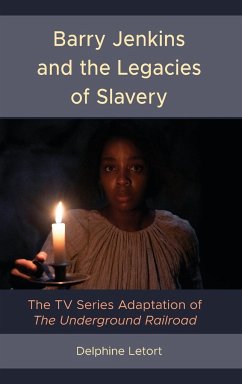
Television Dramas and the Global Village
Storytelling through Race and Gender
Herausgeber: Ríos, Diana I.; Lin, Carolyn A.

PAYBACK Punkte
22 °P sammeln!
This book discusses the role of television drama series on a global scale, analyzing these dramas across the Americas, Europe, Asia, Australia, and Africa. Contributors consider the role of television dramas as economically valuable cultural products and with their depictions of gender roles, sexualities, race, cultural values, political systems, and religious beliefs as they analyze how these programs allow us to indulge our innate desire to share human narratives in a way that binds us together and encourages audiences to persevere as a community on a global scale. Contributors also go on to...
This book discusses the role of television drama series on a global scale, analyzing these dramas across the Americas, Europe, Asia, Australia, and Africa. Contributors consider the role of television dramas as economically valuable cultural products and with their depictions of gender roles, sexualities, race, cultural values, political systems, and religious beliefs as they analyze how these programs allow us to indulge our innate desire to share human narratives in a way that binds us together and encourages audiences to persevere as a community on a global scale. Contributors also go on to explore the role of television dramas as a medium that indulges fantasies and escapism and reckons with reality as it allows audiences to experience emotions of happiness, sorrow, fear, and outrage in both realistic and fantastical scenarios.














